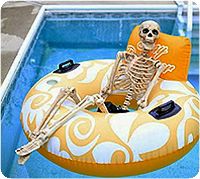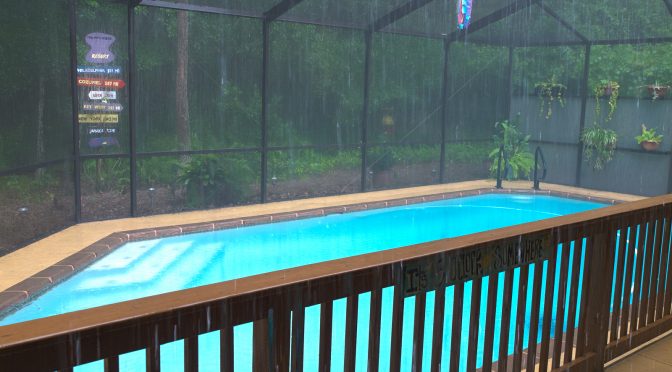 Ray Kurilavicius
Ray Kurilavicius
DART Pool Solutions
*The views and opinions expressed in this article are those of the author and do not necessarily reflect the position of the FSPA. Please confirm the work permissible under your license.*
That time of year is fast approaching; heating season will be here in no time. This long hot summer will fade away as the first cold front comes down and the snowbirds will start flocking south again wanting their pools and spas heated when they arrive. If your company works on heaters, it is time to get your service department in order and your technicians trained.
First things first, your company must have a Florida CPC or county RP license to install or reinstall any heater or any other pool equipment. Second, if you work on LP gas heaters you must have a state license to work on LP equipment, and if you work on natural gas equipment, several counties require licensing. Last but not least, if your company works on heat pumps your technician must have the proper EPA certification to hook up to or work on the refrigeration system. If you are not licensed and do not have the proper certifications, do not work on the equipment. If that piece of equipment fails, your insurer will not cover you for any damages and you and your company, along with the technician who did the work, can and will be held personally liable for any damages. So the bottom line is to get the proper licensing and training and life will be good.
The manufacturers have their training classes starting in September. Check with your local factory representative or go to their website and get your technicians signed up as class space is usually limited and fills up fast. If you work on LP gas heaters, the Florida Department of Agriculture will be able to let you know if a gas safety class will be held near you. The FSPA will have the EPA certification exam prep and exam at the Everything Under the Sunsm Expo in February along with the LP gas exam prep. I thank Mary Anderson at the FSPA state office for all her hard work in putting this together.
As you know, the pool industry and the air conditioning industry have been in a battle over heat pumps regarding who can work on them and install them. Under a pool contractor’s scope of work, we are allowed to do both. Many pool company owners are unaware that they can work on the refrigeration portion of the heater as long as the technician doing the work has the proper EPA certification. The company does not need to be licensed in air conditioning for the work to be done. An air conditioning contractor is only allowed to work on the refrigeration portion and cannot work on any portion of the pool plumbing, this incudes disconnecting the heater even at the unions or replacing the heater even if it is the same model. This being said, several of the heat pump manufacturers do not let pool companies work on their heat pumps even if the techs have the proper certification. They only allow air conditioning contractors to do this work which gives the AC industry a leg to stand on in their quest to sell and install pool heat pumps. I strongly urge all companies to get their technicians EPA certified and trained by the manufacturers or local VO-TEC or technical school so our industry can gain their trust and let us do the work instead of our competition.
The EPA Section 608 Prep and exam will take place at the 2018 Expo on Thursday, February 8, 2018. The exam prep will take place from 8:00 a.m. to 11:00 a.m. Attendees will return for the exam at 2:00 p.m. – 5:00 p.m.
Attendees will register for the course on the 2018 Everything Under the Sunsm Expo website, www.UnderTheSunExpo.com. The cost of the exam prep will be $99 and registration will open in October. There is a study book that each student needs to order prior to the exam, so they have time to study. Attendees will need to purchase the book at least three weeks prior to the class date to give themselves enough time to study and then bring it to the exam prep. The cost of the EPA Preparation book is $14.58+shipping and it can be ordered online or by calling the supplier. The size is limited to 35 students and the cutoff for registration will be January 18, 2018.
So to sum it all up, get your guys trained and certified, knowledge is power and with the proper training your customers will have confidence in your company and your technicians and our industry will look more professional.
*The views and opinions expressed in this article are those of the author and do not necessarily reflect the position of the FSPA. Please confirm the work permissible under your license.














